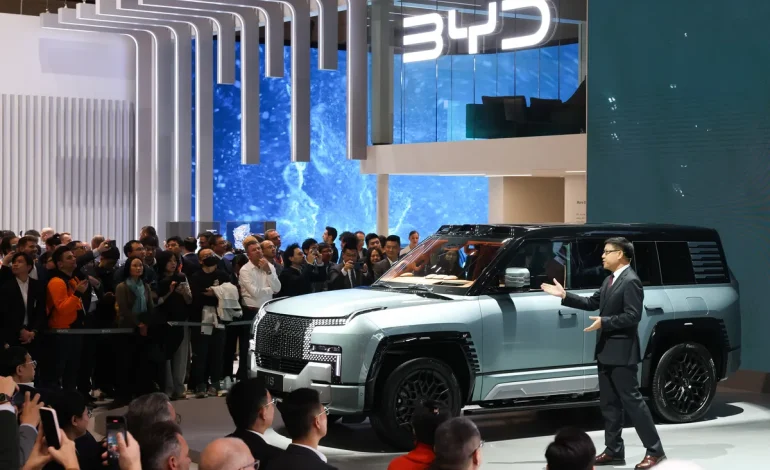Chinese car manufacturers are increasingly turning their sights on the luxury vehicle market in Europe, intensifying competition with established brands like Mercedes-Benz and Porsche, Bloomberg reports.
Following their success in the electric vehicle (EV) sector with affordable models, companies such as BYD Co. are redefining the perception of “Made in China,” positioning their vehicles as symbols of luxury for the modern automotive age.
Mercedes-Benz, once a benchmark for automotive sophistication, is now grappling with declining sales and profitability. The company recently reported its weakest profitability since restructuring in 2021, highlighting the pressures facing even the premium segments of the automotive market. Similarly, Porsche has indicated that it is considering cost reductions and reassessing its vehicle lineup due to decreased demand in China, which has adversely affected earnings.
Historically, luxury brands were perceived as somewhat insulated from competition due to their heritage and prestige. However, this belief is now being challenged as a new wave of Chinese automakers makes inroads into Europe, prompting concern in the $1.2 trillion global market for premium vehicles. Mercedes Chief Financial Officer Harald Wilhelm acknowledged the growing competition, emphasizing that the pressure from Chinese brands is unlikely to dissipate soon.
At recent auto shows, Chinese brands like FAW Group’s Hongqi and BYD’s Yangwang unveiled high-end models such as limousines and SUVs, equipped with advanced technology and luxury features, all at competitive prices. These vehicles pose a serious challenge to traditional European manufacturers, especially in a segment crucial for profitability. For instance, Nio Inc. has opened luxury showrooms in major European cities to showcase models like its EL8 sport utility vehicle, while Polestar has begun deliveries in several European markets with plans for expansion.
The competitive landscape is further complicated by the emergence of companies like Xiaomi, which recently entered the automotive sector with its SU7 model, drawing praise from industry leaders for its performance and features. Xiaomi’s ambitions in the European market were highlighted through their presence at significant events like the Olympic Games and the Nürburgring race track.
The luxury vehicle sector presents a lucrative opportunity for Chinese manufacturers, as they can offer high profit margins and foster customer loyalty. The entry of Chinese brands into this market comes at a challenging time for European automakers, who have recently warned of lower-than-expected profits amid a global economic slowdown.
For years, China was the largest market for high-end models like the Mercedes S-Class and Maybach, but a downturn in sales there has led to a significant decline in profitability for these brands. Mercedes reported a drop in its key profitability measure to 4.7%, below its minimum target of 8%. As a result, the company is adopting a cautious approach to future market developments and emphasizing the need for increased efficiency and cost management.
The competitive landscape is shifting as consumer preferences evolve. The launch of the Tesla Model S in 2012 marked a turning point, pushing luxury carmakers to adapt to changing consumer demands for digital features. Chinese companies are leveraging their expertise in software and battery technology to capture a growing share of the premium segment in their home market, which has tripled in recent years.
Chinese manufacturers are making significant strides in brand recognition and are actively engaging in high-profile marketing efforts to appeal to European customers. Partnerships with upscale dealerships and participation in prestigious events are part of their strategy to establish a foothold in the market.
While the European luxury market remains dominated by established names, the successful entry of brands like Lexus shows that it is not entirely closed off to new competition. Luxury buyers in Europe continue to show strong loyalty to traditional brands, but the growing capabilities and competitive pricing of Chinese vehicles could lead to changes in consumer attitudes.









